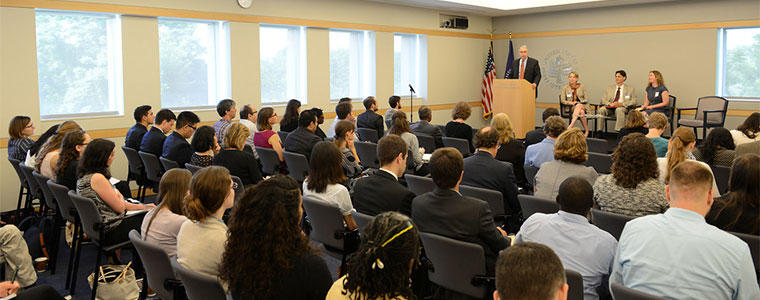Youth & Violence: Engaging the Lost Generation
A joint event hosted by USIP and Mercy Corps
On June 9th, Mercy Corps and USIP held a discussion on youth, violence and peacebuilding.

Youth are a force for positive change, helping transition their countries into productive and secure nations. Yet they are also the primary participants in conflict today and increasingly concentrated in transitional and complex environments.
Where many conflict prevention policies and conflict management efforts fall short is in their tendency to engage youth already less likely to participate in violence – those in school and/or already engaged with their communities – or by failing to design adequately integrated programs that address both the drivers of violent conflict and pathways to peace.
To explore these gaps, this event featured a discussion by experts on the factors that are pushing young people towards participation in violence. It also examined the factors and initiatives that help young people avoid harmful behaviors, including participation in extremism or political violence. The session challenged pre-existing assumptions about youth peacebuilding work, highlighted new interventions that steer young people away from violence, and discussed policy changes necessary to support such interventions.
Continue the conversation on Twitter with #USIPYouth.
Speakers
Anne Richard, Welcoming Remarks
Assistant Secretary, Bureau of Population, Refugees, and Migration, Department of State
Maryanne Yerkes
Senior Civil Society and Youth Advisor, Center on Democracy, Human Rights and Governance, Bureau for Democracy, Conflict and Humanitarian Assistance, US Agency for International Development
Rebecca Wolfe, PhD
Director, Conflict Management & Peacebuilding Program, Mercy Corps
Marc Sommers
Consultant & Visiting Researcher, African Studies Center, Boston University
Steven Heydemann, Moderator
Vice President, Applied Research on Conflict, U.S. Institute of Peace



